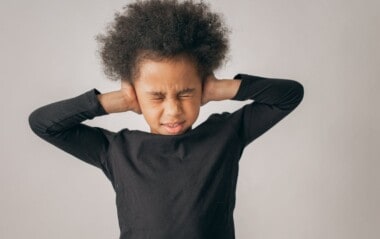Dallas Anxiety Counseling & Therapy Services Fort Worth Texas, Arlington, Uptown, North Park areas. Call our office for Dallas anxiety counseling if you need some help today.
National Media Interview TLC’s Anxiety Stress Experts
Dallas Child Anxiety Counselor Back to School Tips with Changing Schools
Dallas Self Esteem Therapist and Relationship Counselor Fort Worth Arlington
Depression is there a Happy Gene | Dallas Marriage Therapist
What is Anxiety
Anxiety is a normal human emotion commonly expressed as feelings of nervousness and worry. It generally concerns an imminent event or something with an uncertain outcome. Encountering a problem at work, preparing for a test, or making an important decision, are situations that could provoke normal anxiety. However, when anxious thoughts and behaviors are prolonged and the distress begins to cause a negative impact of daily life and functioning, anxiety disorder has developed.
What Are the Types of Anxiety Disorders?
Anxiety disorders are characterized by feelings of excessive worry and fear that is both overwhelming and debilitating. These disorders can often lead to, or be accompanied by secondary issues such as low self-esteem, dysfunctional relationships, substance abuse, and depression.
Panic Disorder:
Feelings of severe apprehension and impending doom or terror are often described. Those suffering with this disorder typically have free-floating (or persistent) anxiety along with anxiety attacks, which are recurrent. Anxiety attacks, also known as Panic attacks, typically involve a physical reaction such as sweating, strong heart palpitations, choking or feeling like throat is about to close up. In some severe cases, people have confused this feeling with having a heart attack.
Generalized Anxiety Disorder (GAD):
People with this disorder have persistent levels of anxiety involving unrealistic or irrational worries and tension. The symptoms of this disorder can appear with little to nothing done to provoke them.
Phobias:
Phobias are the most common mental health disorder in the United States. A phobia is a focused, strong, persistent, and irrational fear of some specific object or situation. Some common phobias are:
o Social Phobia: intense fear of being studied in a social setting. Performance anxiety and fear of public speaking are most common.
o Specific Phobia: extreme fear of a specific object, such as spiders, or a specific situation.
Obsessive-Compulsive Disorder (OCD):
Characterized by repetitive, unreasonable thoughts and fears, such as contamination or odd numbers, that provoke anxiety (obsessions) and ritualistic activities such as excessive hand washing over guilt behavior that reduce anxiety (compulsions). It is possible to only have only obsessions or compulsions and still have OCD.
Post-Traumatic Stress Disorder (PTSD):
Develops in response to extreme psychological or physical trauma, which produces feelings of terror and helplessness. Symptoms include but aren’t limited to; re-experiencing the traumatic event in dreams or memories, avoidance of activities associated with trauma, and heightened emotional arousal.
Total Life Counseling Center Experts in the News on other Topics!
Call one of our Anxiety Experts for a 15 Minutes Complimentary Phone Consultation – (469) 757-5215
Cognitive behavioral therapists
See children, teens, and adults emerge from their urgent needs to engage in compulsions and rituals to reduce their anxieties. In actively confronting and engaging their obsessions and compulsions as much as possible during therapy and then at home, people are able to free themselves from their previous thought patterns. However, it is not stopping the rituals, but learning how to restructure their thoughts and beliefs about their obsessions that makes the difference.
If you or someone you know struggles with Anxiety or (OCD), contact us at (469) 757-5215 for more information about cognitive behavioral treatment.
Anxiety: The Unseen Monster
by Evelyn Wenzel, LCSW
Does it seem like an unseen monster lurks around the corner? Does fear and worry weigh you down? Frustrated because you feeling like nothing will ever change? Everyone experiences anxiety as it is a normal response to threatening situations; however, for some people it becomes a disabling response to life. Irrational responses to everyday situations seem to cripple the 40 million Americans who suffer from anxiety disorder each year. In fact more people suffer from anxiety than depression! What differentiates everyday anxiety from an anxiety disorder? The key words with everyday anxiety are appropriate and reasonable. “Butterflies” in the stomach is a common physiological response when someone experiences anxiety before giving a speech or entering a competition. If a burglar tries to break into your house, fear is a normal response to the situation. So challenges in life that involve lose or failure, and unexpected or unknown situations all cause normative anxiety responses.
Anxiety disorders involve a much more intense response, last a lot longer after the stress situation concludes, and disrupts normal functioning. Anxiety disorders often lead to secondary issues such as low self-esteem, impaired relationships, substance abuse, and depression.
Six anxiety disorders are as follows:
- Generalized Anxiety Disorder (GAD)
- Specific Phobia
- Social Anxiety Disorder
- Obsessive-Compulsive Disorder (OCD)
- Panic Disorder
- Post-Traumatic Stress Disorder (PTSD)
Despite their different forms, these disorders all are neurobiological in nature. Anxiety negatively impacts lives and involves persistent, intense, all-consuming fears or worries. People who suffer from anxiety look for emotional escape and avoidance, which leads them to become observers of their existence rather than participants in life. Specific phobias involve avoiding particular types of objects or situations. Heights, flying, driving, elevators, dental or medical procedures, and animals are all common objects or situations that can cause irrational fear and anxiety.
Obsessive Compulsive Disorder:
(OCD) is characterized by obsessions and compulsions that interrupt normal routines, relationships, and daily functioning. Obsessions are unwanted thoughts, impulses, or ideas that intrude upon a person’s thinking and create increased worry or anxiety. Compulsions are responses to those obsessive thoughts and are done to relieve or prevent the anxiety. PTSD often develops after a traumatic event where a person’s safety or life is threatened or where he/she has witnessed a traumatic event. Even months after the event occurred, people experiencing PTSD have trouble coping with the disabling psychological symptoms created by the event. Social anxiety is one of the most common types of anxiety and is marked by an extreme fear of being embarrassed in a social setting. People are often concerned with being judged or humiliated publicly. The most common type of social anxiety disorder is performance anxiety, such as public speaking. Panic disorder seems to occur without any apparent cause and is characterized by an episode of apprehension and intense fear.
Panic:
Often when someone first experiences Panic Disorder they believe that they are experiencing a heart attack! There physical response to fear is so intense that they experience chest pain, dizziness and shortness of breath. People who suffer from GAD worry excessively about everyday things, such as health issues, work, money, and relationship problems. Many people suffer in silence from this unseen monster and never seek treatment because they don’t believe their live can be any different. Despite the toll it takes on your life, the good news is that anxiety disorders are highly treatable!
Getting Help – Which Anxiety Therapy or Counseling is Right for Me?
“Anxiety or Trauma healing is just a few sessions away.” Our trauma therapists are specialists and you can start feeling better often right after the first session. Effective treatment for anxiety disorders includes Emotion Freedom Techniques (EFT), Eye Movement Desensitization Reprocessing (EMDR), Cognitive Behavioral Therapy (CBT), Dialectical Behavioral Therapy (DBT) and Exposure Based Behavioral Therapy. Call for a Complimentary Phone Consultation with a Trauma Specialist to find out which of the below therapies is best for you!
- EFT – Emotion Freedom Techniques is a very effective short term therapy used in helping people be free from the intense feelings of trauma. This technique is used in addictions treatments as well and in many cases more effective than 12 step programs!
- EMDR – Eye Movement Desensitization Reprocessing is used also for Military Veterans and highly successful in freeing them from the intense trauma they have endured in war and used for auto accidents, dog bites, substance abuse, addictions and more! Read More
- CBT – Cognitive Behavioral Therapy helps people change their thinking patterns and the way they react to anxiety provoking situations.
- Rapid Resolution Trauma Therapy is a method of therapy that pinpoints and addresses an inner issue through clinical hypnosis. Similar to traditional hypnosis the counselor guides the client through their sub-conscious to find the root of their issues. Depending on the issue at hand the counselor will guide each client differently. Rapid Resolution Therapy is the quickest form of therapy for those trying to move on from traumatic events.
- DBT – Dialectical Behavioral Therapy targets skills deficits as well as the cognitive beliefs that maintain the avoidance. The ultimate goal is for you to learn more strategic behavior skills that once acceptance of those feelings occur. Both CBT and DBT incorporate relaxation and stress reduction techniques into their treatment of anxiety. Often they both make use of exposure therapy.
- Exposure Therapy gradually acclimates a person to situations that previously triggered anxiety. This desensitization process helps people confront their fears in a controlled environment. Once phobias are no longer “rewarded” by escape and avoidance, they tend to diminish and fade away.
- Wellness & Supplements: Interestingly, twenty minutes of aerobic exercise per day is thought to be an effective weapon against anxiety. Good nutrition is essential and adding supplements such as B Vitamins, calcium, amino acids, and Vitamin C may be important but the quality of the supplements are paramount. We can direct you to the right health food stores to get the right brands that often work immediately. Caffeine and cigarettes aggravate anxiety and should be eliminated or decreased. Often with your treatment for anxiety the cravings to smoke or drink caffeine are reduced considerably.
Don’t let anxiety rule your life. Get into therapy, exercise, eat right and experience life to its fullest!
Are you interested in learning how to modify your diet and learn more about supplements to help you overcome your anxiety? At TLC because we look at the whole person, clients experience symptom relief sooner by incorporating exercise, dietary adjustments, supplements along with cognitive behavioral therapy. Serving the Southwest, Metro West, East Orlando, Winter Park, Clermont and Central Florida area for anxiety disorder and anxiety therapy.
Types of Treatments:
There are many techniques and methods of treatment for anxiety disorders, and our counselors and therapists will find the one that’s right for you. This list is meant to give you an idea of possible treatments and what they entail.
Cognitive Behavioral Treatment (CBT):
Restructures thought patterns to replace anxious thoughts with non-anxious thoughts. Relaxation and stress reduction techniques are also learned. Typically used with most Anxiety Disorders.
Exposure Therapy:
Involves exposing a person gradually to fearful conditions to desensitize the negative perception and decrease the fearful emotion.
- Typically used with Phobias, Obsessive-Compulsive Disorder, and Post-Traumatic Stress Disorder.
- Eye Movement Desensitization and Reprocessing (EMDR): Involves visualizing and describing disturbing events, while a therapist directions a brain stimulation process to achieve relief and healing regarding a traumatic event much faster then regular psychotherapy.
- Typically used with Post-Traumatic Stress Disorder.
Rapid Resolution Trauma Therapy:
Pinpoints and addresses an inner issue through clinical hypnosis. Similar to traditional hypnosis the counselor guides the client through their sub-conscious to find the root of their issues. Depending on the issue at hand the counselor will guide each client differently. Rapid Resolution Therapy is the quickest form of therapy for those trying to move on from traumatic events. Typically used with Post-Traumatic Stress Disorder.
Dialectical Behavioral Therapy (DBT):
Targets skills deficits as well as the cognitive beliefs that maintain the avoidance. The ultimate goal is for you to learn more strategic behavior skills that once acceptance of those feelings occur. Both CBT and DBT incorporate relaxation and stress reduction techniques into their treatment of anxiety. Often they both make use of exposure therapy. Applies to most Anxiety Disorders.
Wellness and Supplements:
Daily exercise is thought to be an effective weapon against anxiety. Good nutrition is essential and adding supplements such as B Vitamins, calcium, amino acids, and Vitamin C may be important but the quality of the supplements are paramount. We can direct you to the right health food stores to get the right brands that often work immediately. Caffeine and cigarettes aggravate anxiety and should be eliminated or decreased. Often with your treatment for anxiety the cravings to smoke or drink caffeine are reduced considerably.
The goal of Anxiety Treatment:
- Identify distorted thought patterns or triggers that provoke anxiety.
- Overcome and breakdown irrational fears and worries.
- Learn the difference between unnecessary worry and normal anxiety.
- Replace and reframe anxious thoughts and behaviors with non-anxious ones.
- Desensitize fearful emotions associated with objects or situations.
- Presence of anxiety signals a cue for coping and relaxation techniques, instead of panic.
- Regain control of emotions, thoughts, and life!
Call one of our Anxiety Experts for a 15 Minutes Complimentary Phone Consultation – (469) 757-5215
Anxiety Symptoms
DIAGNOSTIC CRITERIA FOR GENERALIZED ANXIETY DISORDER
|
A. Excessive anxiety and worry (apprehensive expectation), occurring more days than not for at least 6 months, about a number of events or activities (such as work or school performance). |
|
B. The person finds it difficult to control the worry. |
| C. The anxiety and worry are associated with three (or more) of the following six symptoms (with at least some symptoms present for more days than not for the past 6 months). Note: Only one item is required in children. |
- restlessness or feeling keyed up or on edge
- being easily fatigued
- difficulty concentrating or mind going blank
- irritability
- muscle tension
- sleep disturbance (difficulty falling or staying asleep, or restless unsatisfying sleep)
D. The focus of the anxiety and worry is not confined to features of an Axis I disorder, e.g., the anxiety or worry is not about having a Panic Attack (as in a Panic Disorder), being embarrassed in public (as in Social Phobia), being contaminated (as in Obsessive-Compulsive Disorder), being away from home or close relatives (as in Separation Anxiety Disorder), gaining weight (as in Anorexia Nervosa), having multiple physical complaints (as in Somatization Disorder), or having a serious illness (as in Hypochondriasis), and the anxiety and worry do not occur exclusively during Post Traumatic Stress Disorder.E. The anxiety, worry, or physical symptoms cause clinically significant distress or impairment in social, occupational, or other important areas of functioning.F. The disturbance is not due to the direct physiological effects of a substance (e.g., a drug of abuse, a medication) or a general medical condition (e.g., hyperthyroidism) and does not occur exclusively during a Mood Disorder, a Psychotic Disorder, or a Pervasive Developmental Disorder.
DIAGNOSTIC FEATURES
- The essential feature of Generalized Anxiety Disorder is excessive anxiety and worry (apprehensive expectation), occurring more days than not for a period of at least 6 months, about a number of events or activities (Criterion A).
- The individual finds it difficult to control the worry (Criterion B).
- The anxiety and worry are accompanied by at least three additional symptoms from a list that includes restlessness, being easily fatigued, difficulty concentrating, irritability, muscle tension, and disturbed sleep (only one additional symptom is required in children) (Criterion C).
- The focus of the anxiety and worry is not confined to features of another Axis I disorder such as having a Panic Attack (as in Panic Disorder), being embarrassed in public (as in Social Phobia), being contaminated (as in Obsessive-Compulsive Disorder), being away from home or close relatives (as in Separation Anxiety Disorder), gaining weight (as in Anorexia Nervosa), having multiple physical complaints (as in Somatization Disorder), or having a serious illness (as in Hypochondriasis), and the anxiety and worry do not occur exclusively during Post Traumatic Stress Disorder (Criterion D).
- Although individuals with Generalized Anxiety Disorder may not always identify the worries as “excessive,” they report subjective distress due to constant worry, have difficulty controlling the worry, or experience relatedimpairment in social, occupational, or other important areas of functioning (Criterion E).
- The disturbance is not due to the direct physiological effects of a substance (i.e., a drug of abuse, a medication, or toxin exposure) or a general medical condition and does not occur exclusively during a Mood Disorder, a Psychotic Disorder, or a Pervasive Developmental Disorder (Criterion F).
- The intensity, duration, or frequency of the anxiety and worry is far out of proportion to the actual likelihood or impact of the feared event. The person finds it difficult to keep worrisome thoughts from interfering with attention to tasks at hand and has difficulty stopping the worry. Adults with Generalized Anxiety Disorder often worry about everyday, routine life circumstances such aspossible job responsibilities, finances, the health of family members, misfortune to their children, or minor matters (such as household chores, car repairs, or being late for appointments). Children with Generalized Anxiety Disorder tend to worry excessively about their competence or the quality of their performance. During the course of the disorder, the focus of worry may shift from one concern to another.
PREVALENCE
In a community sample, the 1-year prevalence rate for Generalized Anxiety Disorder was approximately 3% and the lifetime prevalence rate was 5%. In anxiety disorder clinics, approximately 12% of the individuals present with Generalized Anxiety Disorder.
COURSE
Many individuals with Generalized Anxiety Disorder report that they have felt anxious and nervous all of their lives. Although over half of those presenting for treatment report onset in childhood or adolescence, onset occurring after age 20 years is not uncommon. The course is chronic but fluctuating and often worsens during times of stress.
Orlando Counselor on The Effects of Trauma
The effects of trauma are not limited by factors such as age, gender, socioeconomic status, race, ethnicity, or sexual orientation. The experience of trauma is common among both adults and children, but it is [...]
3 Things You Can Do If You Suspect Your Child Is Suffering From Anxiety and/or Depression.
A recent study by JAMA Pediatrics (Journal of American Medical Association) reported that between 2016 and 2020, youth anxiety increased a 29% in the United States. How Can I Show Support To Someone Suffering [...]
Counseling Awareness
April is the season of springtime and growth! This is an excellent time of the year to facilitate the growth of your mental health and development. Mental health is a critical topic to talk [...]
How Much Social Media is Too Much for my Teen – US Surgeon General Warns Social Media is Harmful to Children and Youth
Roughly 95% of adolescents aged 13-17 report using social media. Social media use can present mental health concerns, such as anxiety and depression, in children and adolescents who spend more than 3 hours a [...]
Having a Sleep Schedule Could Greatly Improve Your Rest
Sleep is important. Getting enough sleep isn’t always easy, we might have a hard time falling asleep when we want to or we might not want to go to sleep early at [...]
Understanding Self-Esteem and the Brain | 4 Steps to Improve your Self-Esteem | Counselor Jada Jackson LMHC
Dallas Self Esteem Expert Jada Jackson gives insight into understanding self-esteem and the brain as well as 4 steps to improve your self esteem. We all have those days when we feel like we just [...]
The Relationship Between Psychosis and Schizophrenia
Psychosis and schizophrenia are phrases that are closely related but are unique from one another. Both of these conditions can have a substantial impact on an individual's mental health and overall well-being. The underlying [...]
The Impact of Infertility
The impact of infertility is not discussed enough, but it is a prevalent problem. Its effects take a toll on a person physiologically and mentally. One in eight couples have reported to have difficulty conceiving [...]
The Symptoms and Treatments for Autism
Autism spectrum disorder is a developmental disability, characterized by differences in the brain. People affected by autism often have problems with social interaction, repetitive behavior/ movements, and impulsive behaviors. Autism affects 1 in 44 [...]
With our team of professionals, and by special arrangements, we can handle most any emotional, mental, or spiritual need. As a team we have several counselors specializing in most areas of concern – (469) 757-5215
Dallas Office Location
Our Dallas counseling, therapy, camps, group, coaching and career services are conveniently located at 6060 N. Central Expressway in Dallas, TX
Total Life Counseling Center – Dallas/Ft.Worth
Lucid Private Offices – Dallas
Mockingbird Station/SMU Location
6060 N. Central Expressway, Ste 500
Dallas, TX 75206









